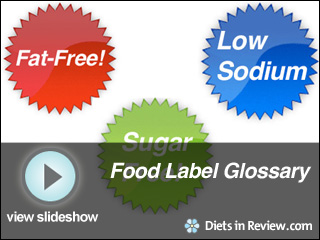 The FDA is often criticized for not being tough enough in its regulations. But now, it’s the federal agency’s turn to come down hard on food manufacturing corporations that are making false health claims on scores of products.
The FDA is often criticized for not being tough enough in its regulations. But now, it’s the federal agency’s turn to come down hard on food manufacturing corporations that are making false health claims on scores of products.
According to the FDA, 22 products made by companies like Nestle, Diamond Foods and POM violate the federal Food, Drug and Cosmetic Act by using unauthorized words like “healthy” and “cholesterol free.” Using such words on product packaging requires that the item’s nutritional content must meet the FDA’s very strict definition of “healthy” or “cholesterol free.”
One of the products flagged is Dreyer’s Grand Ice Cream for Nestle Drumsticks and Dibs. The products claims to have zero grams of trans-fat on their packages, but the FDA is calling out Dreyer’s, a subsidiary of Nestle, for violating labeling regulations. One serving of Dibs actually contains 17 grams of saturated fat and one Nestle vanilla Drumstick contains 11 grams of saturated fat. Federal guidelines recommend consuming no more than 20 grams of saturated fat per day.
Other citations include Gerber baby food, Juicy Juice, POM pomegranate juice and Gorton’s fish fillets.
POM’s pomegranate juice is being cited for its claims that the beverage can help to prevent or cure diseases like cancer, hypertension and diabetes.
Nestlé Juicy Juice makes the claim that its children-targeted drinks come from a single fruit source rather than a flavored blend of juices, which they do in fact contain.
All in all, the FDA sent out 17 letters to companies representing the 22 red-flagged products. The companies have 15 days to respond explaining how they plan to correct the current food labels.
This is just one step taken by the FDA to clamp down on food manufacturing companies who make exaggerated health claims on their not-so-healthy products. Given the current state of obesity in the country, such unsubstantiated labels are an additional nail in the nation’s ever expanding coffin.
The FDA “soon will propose guidance regarding calorie and nutrient labeling on the front of food packages.” The agency “plans to work collaboratively with the food industry to design and implement innovative approaches to front-of-package labeling that can help consumers choose healthy diets.”

